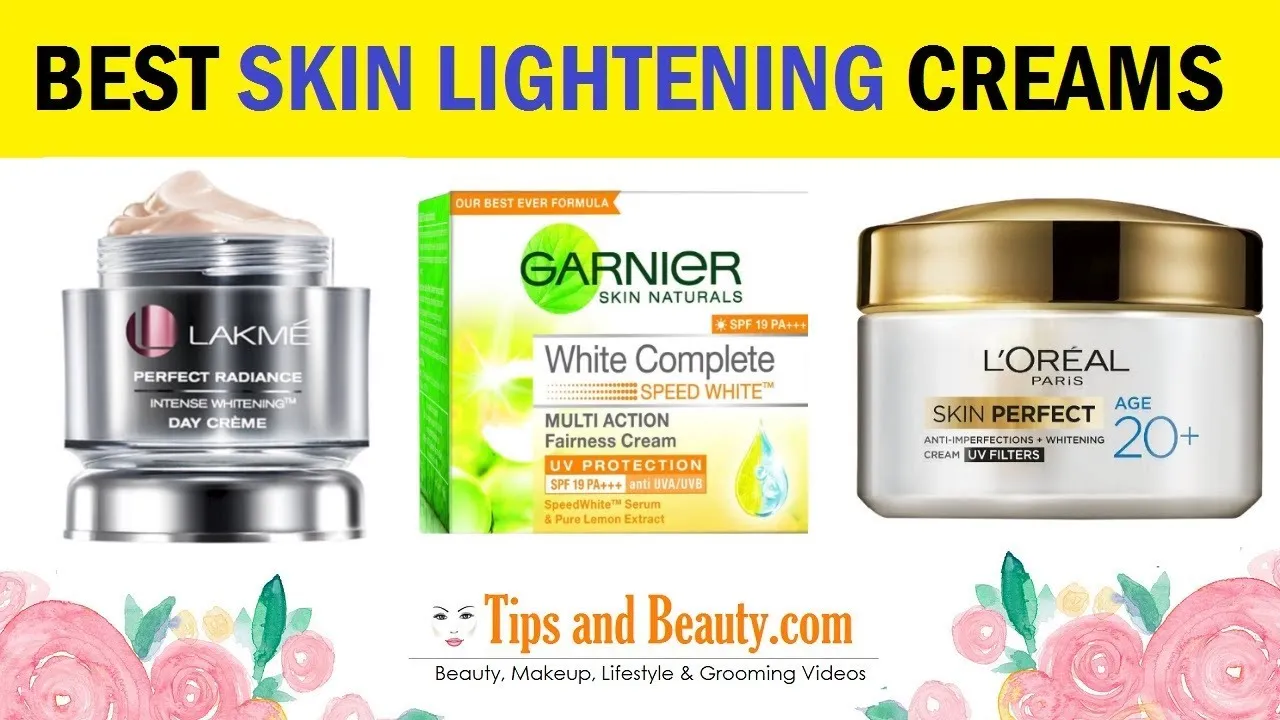What to Look for in Best Skin Whitening Cream
Choosing the best skin whitening cream involves careful consideration of several factors. Firstly, understand your skin type. Different creams are formulated for different skin types – dry, oily, sensitive, or combination. Secondly, check the ingredients list. Look for active ingredients known for their skin-brightening properties, such as vitamin C, kojic acid, arbutin, or niacinamide. Research the concentration of these ingredients to ensure they are effective but also safe for your skin. Thirdly, consider the product’s formulation. Creams, lotions, and serums all have different textures and absorption rates. Opt for a formulation that suits your preference and skin’s needs. Furthermore, read reviews from other users to gauge the product’s effectiveness and potential side effects. Lastly, always prioritize products from reputable brands that adhere to safety standards and provide clear information about their ingredients and usage.
Ingredients to Avoid in Skin Whitening Creams
While seeking a skin whitening cream, it’s crucial to be aware of ingredients that can potentially harm your skin. One such ingredient is hydroquinone, particularly in high concentrations. While effective, hydroquinone can cause side effects like skin irritation, ochronosis (a permanent bluish-black discoloration), and increased sun sensitivity. Another ingredient to avoid or use with extreme caution is mercury. Mercury-containing creams are illegal in many countries due to their severe health risks, including kidney damage and neurological problems. Moreover, be wary of products containing harsh chemicals like strong steroids, which can thin the skin and lead to other complications. Always check for parabens, sulfates, and artificial fragrances, as these can irritate sensitive skin. Finally, steer clear of products with vague ingredient lists or those that don’t disclose the concentration of active ingredients. Always prioritize products that are safe and transparent about their composition.
Hydroquinone and Skin Whitening

Hydroquinone is a widely-used ingredient in skin whitening creams, known for its ability to lighten skin by reducing the production of melanin, the pigment responsible for skin color. It works by inhibiting tyrosinase, an enzyme essential for melanin synthesis. Hydroquinone is often prescribed by dermatologists for treating hyperpigmentation issues such as dark spots, age spots, melasma, and post-inflammatory hyperpigmentation. Effective concentrations typically range from 2% to 4%. However, hydroquinone is not without controversy. Because of potential side effects, it’s essential to use it under the guidance of a healthcare professional. They can assess your skin type, determine the appropriate concentration, and monitor for any adverse reactions. Always follow the prescribed usage instructions to minimize risks. When used correctly, hydroquinone can be a potent tool for achieving a more even skin tone.
The Risks of Hydroquinone
While hydroquinone can be effective, it carries potential risks. One significant concern is the possibility of skin irritation, which can manifest as redness, itching, and dryness. Prolonged use can lead to ochronosis, a condition where the skin develops a permanent bluish-black discoloration. This is a serious side effect that can be challenging to treat. Hydroquinone also increases the skin’s sensitivity to sunlight, making it more susceptible to sunburn and further hyperpigmentation. Therefore, sun protection is critical while using hydroquinone. Furthermore, there are concerns about its long-term safety, with some studies suggesting a possible link to cancer, although evidence remains inconclusive. It’s crucial to weigh these risks and benefits carefully before using hydroquinone, ideally consulting with a dermatologist to determine if it’s a safe option for your specific skin concerns.
Alternative Natural Ingredients
If you prefer natural alternatives to hydroquinone, several ingredients can help brighten your skin. Vitamin C is a powerful antioxidant that inhibits melanin production and protects against sun damage. Kojic acid, derived from fungi, is another effective ingredient that inhibits tyrosinase, similar to hydroquinone. Arbutin, found in plants like bearberry, is a natural derivative of hydroquinone that is considered gentler. Niacinamide, a form of vitamin B3, can reduce hyperpigmentation and improve skin tone. Licorice extract contains glabridin, which has skin-lightening and anti-inflammatory properties. Furthermore, lactic acid and glycolic acid, both AHAs (alpha-hydroxy acids), can exfoliate the skin, promoting cell turnover and reducing dark spots. When choosing natural ingredients, remember that consistency is key. Results may take longer to appear compared to hydroquinone, but these alternatives offer a safer, often more gentle approach to skin brightening.
Kojic Acid for Skin Whitening
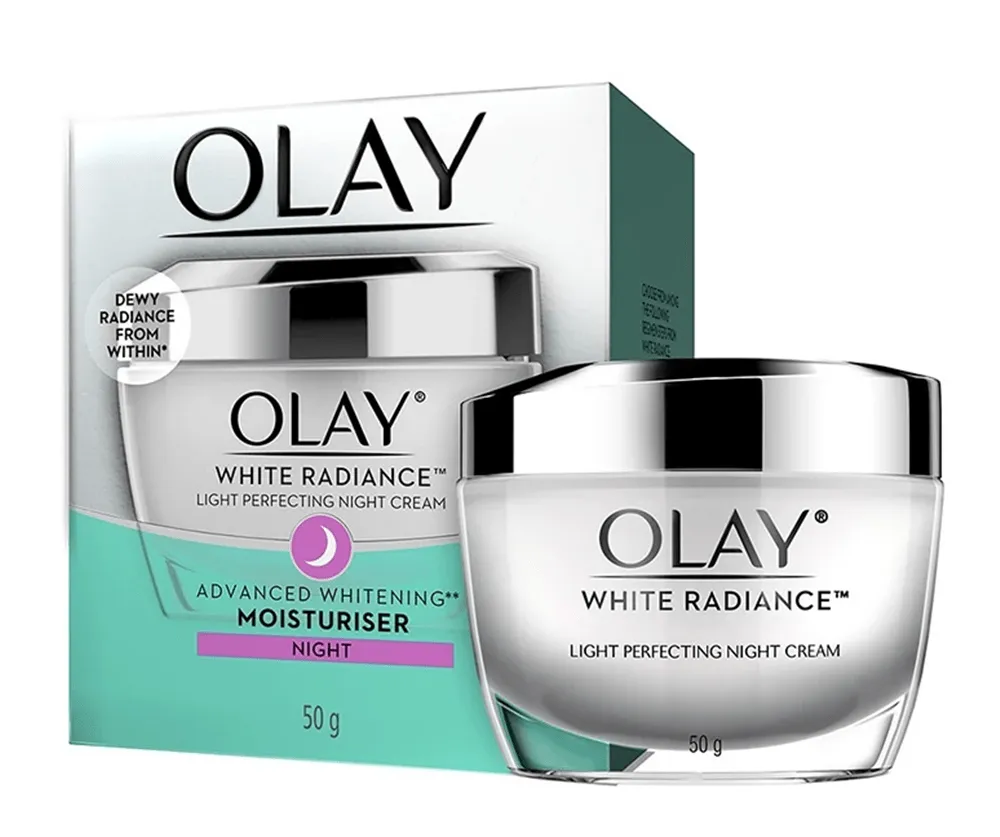
Kojic acid is a natural ingredient derived from various types of fungi and a byproduct of fermented foods like soy sauce and rice wine. It’s a popular choice in skin whitening creams due to its effectiveness in inhibiting melanin production. Kojic acid works by blocking tyrosinase, the enzyme that converts the amino acid tyrosine into melanin. This action reduces the formation of dark spots, age spots, and uneven skin tone. Kojic acid has antioxidant properties, which can help protect the skin from free radical damage. It is generally considered safer than hydroquinone and can be effective in lower concentrations. However, some people may experience minor side effects, such as skin irritation or sensitivity, especially with higher concentrations or frequent use. Therefore, it’s advisable to start with a lower concentration and gradually increase if needed, while always observing how your skin reacts. Consistent use can lead to noticeable improvements in skin brightness and clarity.
Vitamin C for Skin Brightening
Vitamin C, also known as ascorbic acid, is a potent antioxidant and a vital ingredient for skin brightening. It plays a crucial role in skin health by protecting against free radical damage caused by environmental factors like UV rays and pollution. Vitamin C inhibits tyrosinase, which is instrumental in melanin production, thereby helping to lighten dark spots and even out skin tone. In addition to its skin-lightening properties, vitamin C promotes collagen production, which improves skin elasticity and reduces the appearance of fine lines and wrinkles. It also has anti-inflammatory properties that can help soothe irritated skin. Vitamin C comes in various forms, such as L-ascorbic acid, which is the most potent but can be unstable. Other derivatives, like sodium ascorbyl phosphate and magnesium ascorbyl phosphate, are more stable and less irritating. For optimal results, choose a vitamin C serum or cream with a concentration between 10% and 20% and store it in a cool, dark place to maintain its efficacy.
Arbutin and Skin Whitening
Arbutin is a natural derivative of hydroquinone found in plants like bearberry, cranberry, and pear. It’s a popular ingredient in skin whitening products because it’s generally considered gentler and more stable than hydroquinone. Arbutin works by inhibiting tyrosinase, the enzyme responsible for melanin production, reducing the appearance of dark spots and uneven skin tone. There are two main types of arbutin: alpha-arbutin and beta-arbutin. Alpha-arbutin is the more effective and stable form. Arbutin is often combined with other ingredients like vitamin C or niacinamide to enhance its skin-brightening effects. While generally safe, some people may experience mild irritation or sensitivity. It’s important to do a patch test before applying any new product containing arbutin to a larger area of the skin. Consistent use of arbutin-based creams or serums can lead to a more even and radiant complexion, making it a good choice for those seeking a natural approach to skin whitening.
Choosing the Right Cream for Your Skin Type
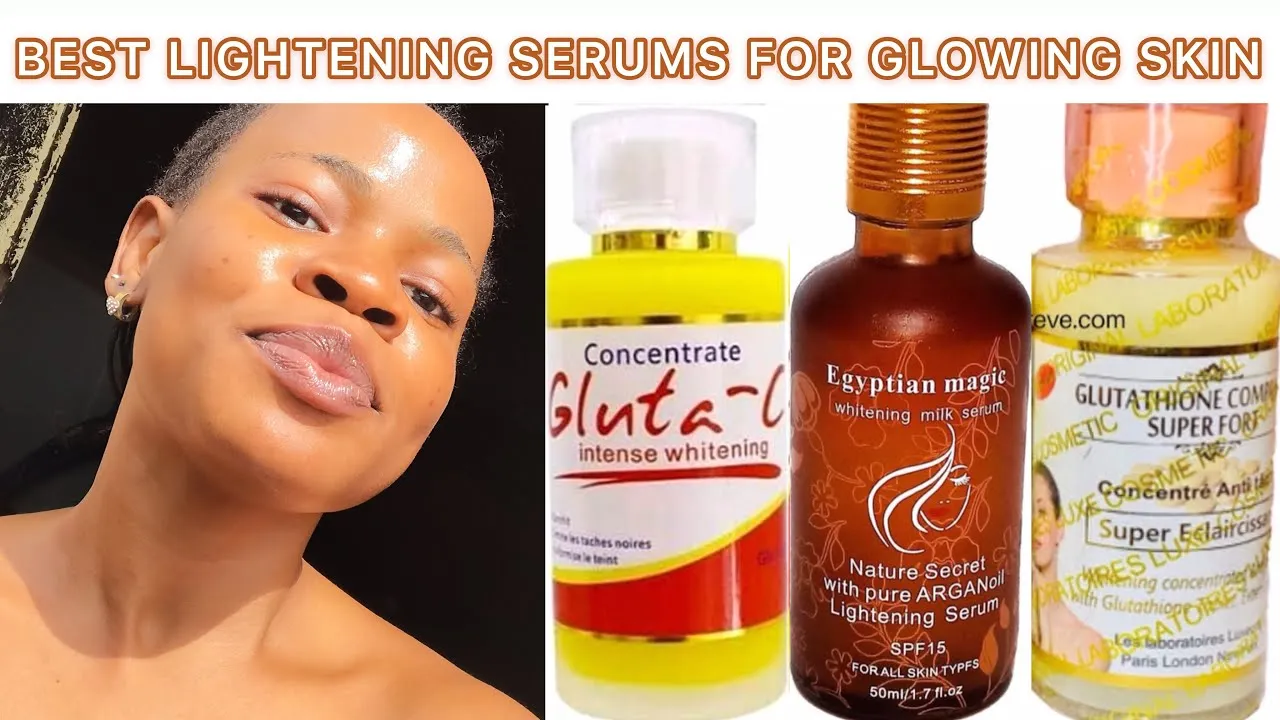
Selecting the right skin whitening cream based on your skin type is crucial for achieving optimal results and avoiding potential irritation. If you have sensitive skin, opt for creams with gentle ingredients like vitamin C, arbutin, and niacinamide, and avoid harsh chemicals, fragrances, and high concentrations of active ingredients. Always perform a patch test before applying the cream to your entire face. For oily skin, choose lightweight, non-comedogenic (pore-clogging) formulas, such as serums or lotions, that contain ingredients like kojic acid or salicylic acid to help control oil production. Avoid thick creams that can exacerbate breakouts. If you have dry skin, look for moisturizing creams with hydrating ingredients like hyaluronic acid, ceramides, and emollients to prevent dryness while brightening your skin. Creams for dry skin often contain higher concentrations of active ingredients and are formulated to be richer. For combination skin, you may need to use different products on different areas of your face or opt for a balanced formula that addresses both oiliness and dryness. Understanding your skin’s specific needs will help you choose a cream that effectively whitens your skin while keeping it healthy and balanced.
Best Skin Whitening Cream for Sensitive Skin
If you have sensitive skin, choosing a skin whitening cream requires extra care to avoid irritation and adverse reactions. Look for products specifically formulated for sensitive skin, often labeled as ‘hypoallergenic’ or ‘dermatologist-tested.’ Prioritize gentle, natural ingredients that are less likely to cause irritation. Vitamin C, in the form of sodium ascorbyl phosphate or magnesium ascorbyl phosphate, is a good option due to its antioxidant properties and lower potential for irritation compared to L-ascorbic acid. Arbutin, especially alpha-arbutin, is a gentler alternative to hydroquinone. Niacinamide can also help reduce hyperpigmentation without causing significant irritation. Always avoid products containing harsh chemicals, fragrances, and high concentrations of active ingredients. Perform a patch test on a small area of skin before applying the cream to your entire face. Introduce the cream gradually, starting with once a day, and monitor your skin for any signs of redness, itching, or burning. If you experience any adverse reactions, discontinue use immediately and consult a dermatologist.
Best Skin Whitening Cream for Oily Skin
For those with oily skin, finding a skin whitening cream that won’t exacerbate oiliness or cause breakouts is essential. The best choices are lightweight, non-comedogenic formulas, such as serums or lotions, that won’t clog pores. Look for ingredients like kojic acid, known for its antibacterial and skin-brightening properties, and salicylic acid, which can help exfoliate the skin and control oil production. Niacinamide is also an excellent choice, as it can regulate oil production and reduce inflammation. Avoid heavy creams or oil-based products. Instead, opt for water-based or gel-based formulations that absorb quickly into the skin. Always cleanse your face thoroughly before applying the cream to remove excess oil and impurities. Use a toner to further balance your skin’s pH level. Consider using a mattifying sunscreen during the day to control shine and protect your skin from sun damage, which can worsen hyperpigmentation. Consistent use of the right cream, along with a good skincare routine, can help brighten your skin and manage oiliness.
Best Skin Whitening Cream for Dry Skin
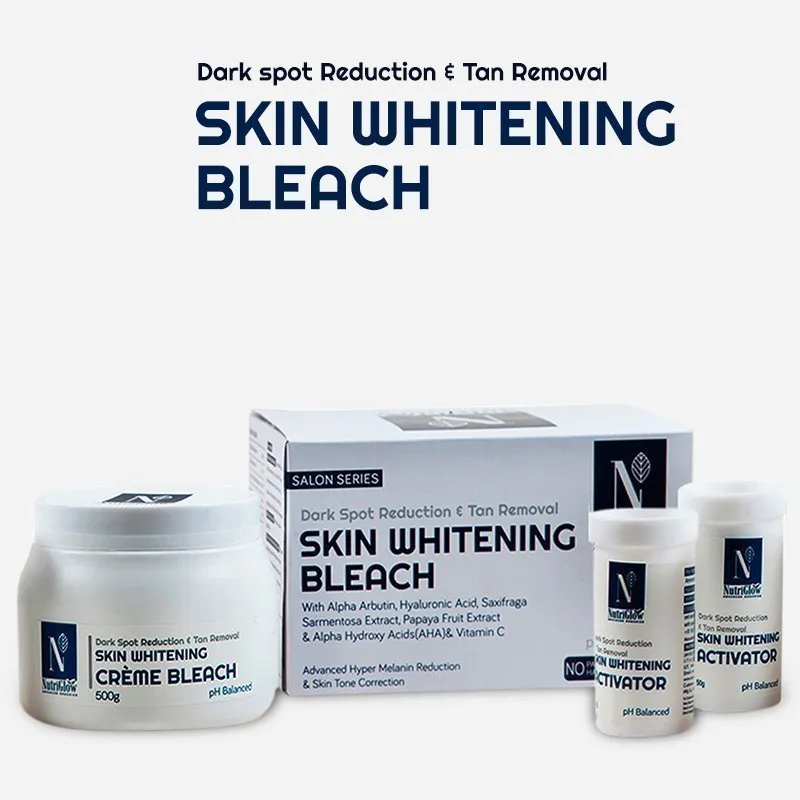
If you have dry skin, the best skin whitening cream should provide both skin-brightening and moisturizing benefits. Look for rich, emollient creams that contain hydrating ingredients like hyaluronic acid, ceramides, and glycerin to replenish moisture. These ingredients help to attract and retain water in the skin, preventing dryness. Choose creams with higher concentrations of active ingredients like vitamin C, arbutin, or kojic acid, but be mindful of potential irritation. When selecting products, avoid those with alcohol, which can dry out the skin. Incorporate a hydrating serum before applying the cream to boost moisture levels. Apply the cream generously, especially at night, to allow the ingredients to penetrate deeply. Consider using a humidifier to add moisture to the air, especially during dry seasons or in climate-controlled environments. Regular exfoliation, once or twice a week, can help remove dead skin cells and improve the absorption of the cream’s active ingredients. Always remember to apply sunscreen during the day to protect your skin from sun damage, which can worsen dryness and hyperpigmentation.
How to Apply Skin Whitening Cream
The correct application of skin whitening cream is crucial for achieving optimal results and minimizing potential side effects. Start by cleansing your face with a gentle cleanser to remove dirt, oil, and makeup. Pat your skin dry. If using a serum, apply it before the cream. Take a small amount of cream, about the size of a pea, and gently massage it onto the affected areas, such as dark spots or uneven skin tone, using upward circular motions. Avoid applying too much cream, as this won’t necessarily speed up results and can increase the risk of irritation. Ensure the cream is evenly distributed. Do not apply the cream to your entire face if you are only targeting specific areas. If you are using a new product, start by applying it once a day, preferably at night, to assess how your skin reacts. If your skin tolerates the cream well, you can gradually increase application to twice a day, as directed by the product instructions or a dermatologist. Make sure to wash your hands thoroughly after applying the cream to avoid transferring it to other parts of your body. Be patient, as results typically take several weeks or months to appear.
Application Frequency
The frequency of applying skin whitening cream depends on the product’s ingredients, your skin type, and the specific instructions provided by the manufacturer or dermatologist. Generally, it’s best to start with once-a-day application, preferably at night, to allow the cream to work while you sleep and to minimize sun exposure, which can reduce its effectiveness. If your skin tolerates the cream well and you don’t experience any irritation, you may be able to increase application to twice a day, in the morning and evening. However, it’s crucial to monitor your skin for any signs of adverse reactions, such as redness, dryness, or itching. If you notice any of these symptoms, reduce the frequency of application or discontinue use and consult with a dermatologist. Always follow the product instructions carefully, as some creams are designed for once-a-day use only. Remember that using more cream or applying it more frequently doesn’t necessarily lead to faster results and can increase the risk of side effects.
Sun Protection is Essential
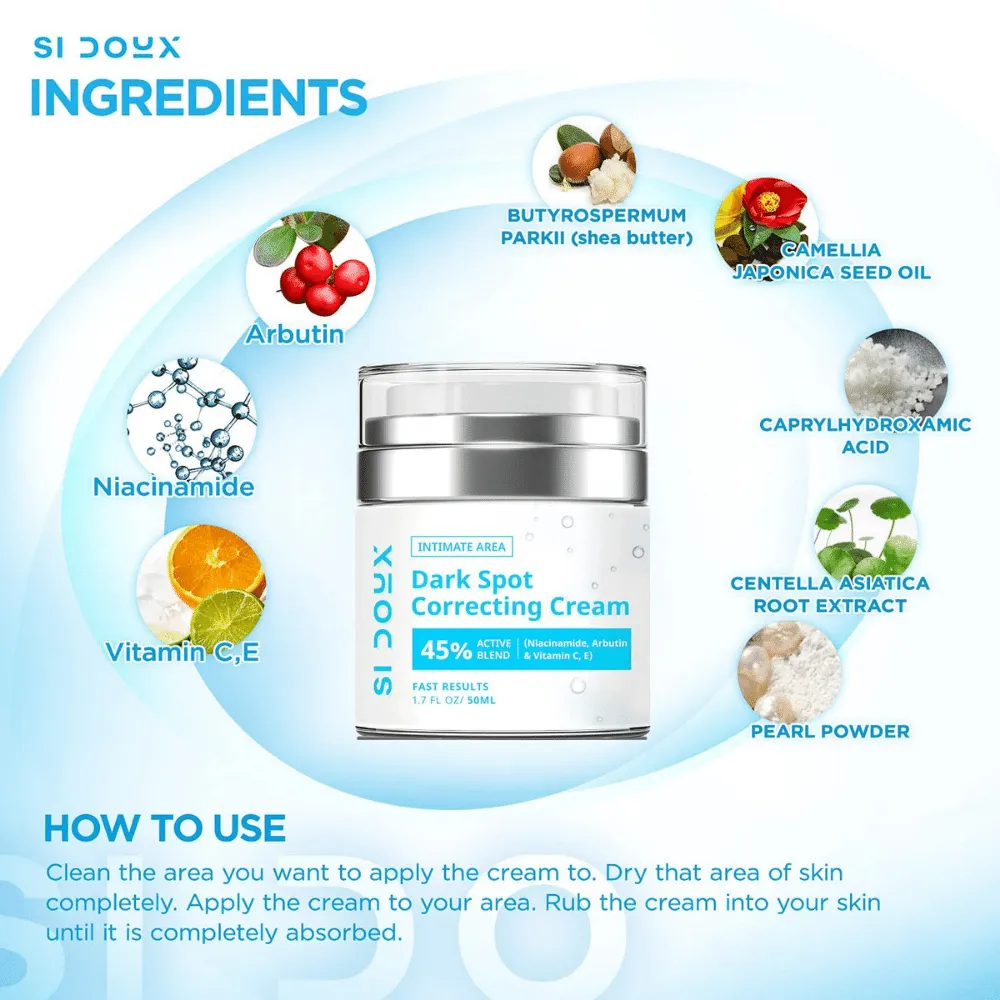
Sun protection is absolutely critical when using skin whitening creams. Many active ingredients in these creams, such as hydroquinone and retinoids, can increase your skin’s sensitivity to the sun. Sun exposure can also worsen hyperpigmentation and reduce the effectiveness of the cream. Therefore, apply a broad-spectrum sunscreen with an SPF of 30 or higher every morning, even on cloudy days. Reapply sunscreen every two hours, especially if you are spending time outdoors. In addition to sunscreen, consider wearing protective clothing, such as hats and long sleeves, and seeking shade during peak sun hours. Avoid tanning beds. Consistent sun protection not only helps to protect your skin from further damage but also allows the skin whitening cream to work more effectively. By minimizing sun exposure, you maximize your chances of achieving a more even skin tone and preventing new dark spots from forming. Sunscreen is a non-negotiable part of your skincare routine when using skin whitening products.
Where to Buy the Best Skin Whitening Cream
Finding a reputable source to purchase skin whitening cream is essential to ensure product quality and safety. Dermatologist offices often carry and recommend specific brands and formulations. Pharmacies are another reliable source, as they typically stock products from well-known, regulated brands. Online retailers offer a vast selection of skin whitening creams, but it’s important to be cautious. Always buy from reputable websites, such as the brand’s official site or established online pharmacies. Read reviews and check for certifications to ensure the product’s authenticity and quality. Avoid purchasing creams from unverified sellers or websites with questionable reputations. Before making a purchase, research the product and its ingredients thoroughly, ensuring they are suitable for your skin type and address your specific concerns. If possible, consult with a dermatologist before buying a skin whitening cream to get personalized recommendations and guidance.
